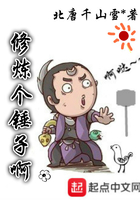After breakfast the next morning Carl started again on his way. His new friend, Edward Downie, accompanied him for a mile, having an errand at that distance.
"I wish you good luck, Carl," he said, earnestly. "When you come this way again, be sure to stop in and see me."
"I will certainly do so, but I hope I may find employment."
"At any rate," thought Carl, as he resumed his journey alone, "I am better off than I was yesterday morning. Then I had but twenty-five cents; now I have a dollar."
This was satisfactory as far as it went, but Carl was sensible that he was ****** no progress in his plan of earning a living. He was simply living from hand to mouth, and but for good luck he would have had to go hungry, and perhaps have been obliged to sleep out doors.
What he wanted was employment.
It was about ten o'clock when, looking along the road, his curiosity was excited by a man of very unusual figure a few rods in advance of him. He looked no taller than a boy of ten; but his frame was large, his shoulders broad, and his arms were of unusual length. He might properly be called a dwarf.
"I am glad I am not so small as that," thought Carl. "I am richer than he in having a good figure. I should not like to excite attention wherever I go by being unusually large or unusually small."
Some boys would have felt inclined to laugh at the queer figure, but Carl had too much good feeling. His curiosity certainly was aroused, and he thought he would like to get acquainted with the little man, whose garments of fine texture showed that, though short in stature, he was probably long in purse. He didn't quite know how to pave the way for an acquaintance, but circumstances favored him.
The little man drew out a handkerchief from the side pocket of his overcoat. With it fluttered out a bank bill, which fell to the ground apparently unobserved by the owner.
Carl hurried on, and, picking up the bill, said to the small stranger as he touched his arm: "Here is some money you just dropped, sir."
The little man turned round and smiled pleasantly.
"Thank you. Are you sure it is mine?"
"Yes, sir; it came out with your handkerchief."
"Let me see. So it is mine. I was very careless to put it loose in my pocket."
"You were rather careless, sir."
"Of what denomination is it?'
"It is a two-dollar note."
"If you had been a poor boy," said the little man, eying Carl keenly, "you might have been tempted to keep it. I might not have known."
Carl smiled.
"What makes you think I am not a poor boy?" he said.
"You are well dressed."
"That is true; but all the money I have is a dollar and five cents."
"You know where to get more? You have a good home?"
"I had a home, but now I am thrown on my own exertions," said Carl, soberly.
"Dear me! That is bad! If I were better acquainted, I might ask more particularly how this happens. Are you an orphan?"
"No, sir; my father is living."
"And your mother is dead?"
"Yes, sir."
"Is your father a poor man?"
"No, sir; he is moderately rich."
"Yet you have to fight your own way?"
"Yes, sir. I have a stepmother."
"I see. Are you sure you are not unreasonably prejudiced against your stepmother? All stepmothers are not bad or unkind."
"I know that, sir."
"Yours is, I presume?"
"You can judge for yourself."
Carl recited some incidents in his experience with his stepmother. The stranger listened with evident interest.
"I am not in general in favor of boys leaving home except on extreme provocation," he said, after a pause; "but in your case, as your father seems to take part against you, I think you may be justified, especially as, at your age, you have a fair chance of ****** your own living."















